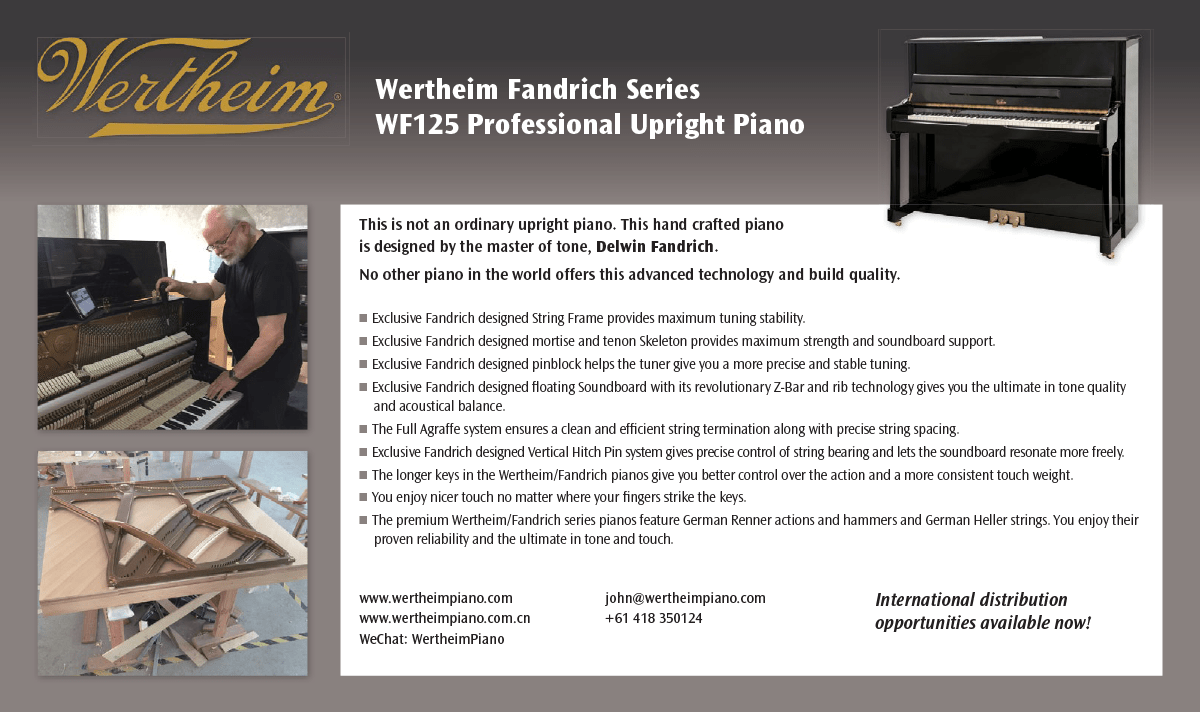
The overwhelming majority of new-piano warranties cover the cost of parts and labor necessary to correct any defect in materials or workmanship. The warrantor (usually the manufacturer or distributor) also generally reserves the right to replace the piano should it choose to in lieu of repair. The warrantee (the customer) generally makes warranty claims to the dealer who, upon approval of the warrantor, makes the necessary repairs or replaces the instrument, as applicable. If the dealer has gone out of business, or if the customer has moved, warranty claims are made to the new local dealer of that brand, if any, or directly to the warrantor.
Warranties are in effect from the date of purchase and generally run between five and fifteen years, depending on the manufacturer. Note that there is little correlation between the length of the warranty and the quality of the piano, as decisions on warranty terms are often made based on marketing factors. For example, a new manufacturer might well offer a longer warranty to help bolster sales.
The Magnuson-Moss Warranty Act mandates that warranties be either full or limited. In the piano industry, the only significant difference is that full warranties remain in effect for the entire stated term, regardless of piano ownership, whereas limited warranties cover only the original purchaser. If you plan on possibly selling or trading up within a few years, a full warranty offers protection to the new owner, increasing the piano’s value to them, and may justify a little higher selling price or trade-in value.
The final key issue about piano warranties concerns who stands behind the warranty. In most cases the warranty is backed by the actual manufacturer. This is advantageous, as the manufacturer has a major capital investment in its factory and has probably been in business for many years. The likelihood is that it will be around for the entire five- to fifteen-year period of your warranty. In today’s piano market, however, many brands are manufactured under contract for a distributor, and the warranty is backed only by that distributor. Often, the distributor’s only investment is a small rented office/ warehouse and a few dozen pianos. Pianos are also often made to order for a particular dealership under a private brand name and are sold — and warranted — only by that dealership and/or its affiliates. In those cases, the warranty is further limited by the financial strength of the distributor or dealership, which can be difficult for the shopper to evaluate. In these situations, caution is called for.
When purchasing a used or restored piano, there is no warranty from a private, non-commercial seller, but a commercial seller will usually provide some kind of warranty, even if for only a few months. Pianos that have been completely restored typically come with a warranty with terms similar to that of a new piano, though of course it is backed by only the restorer.
Previous Topic Next Topic